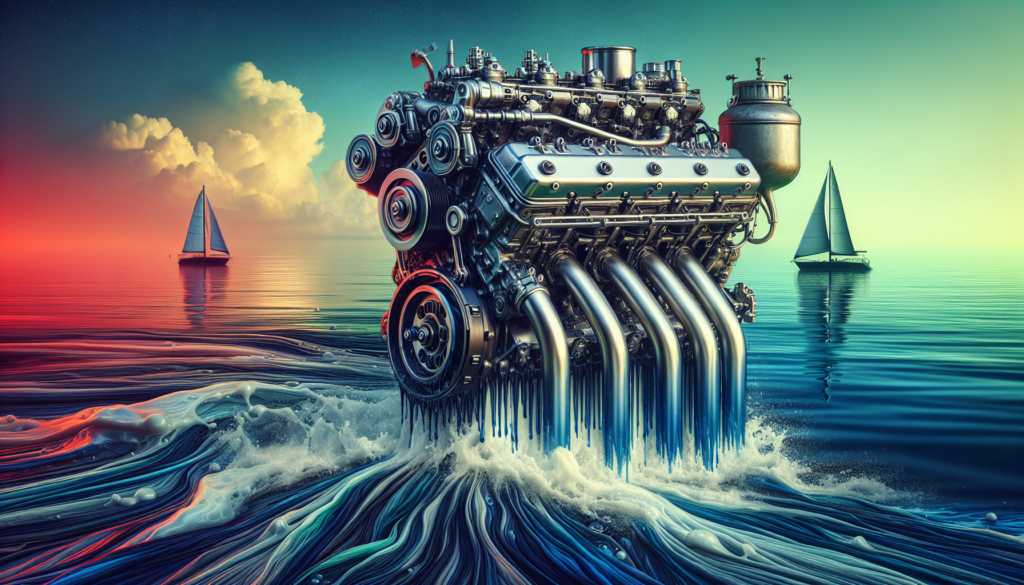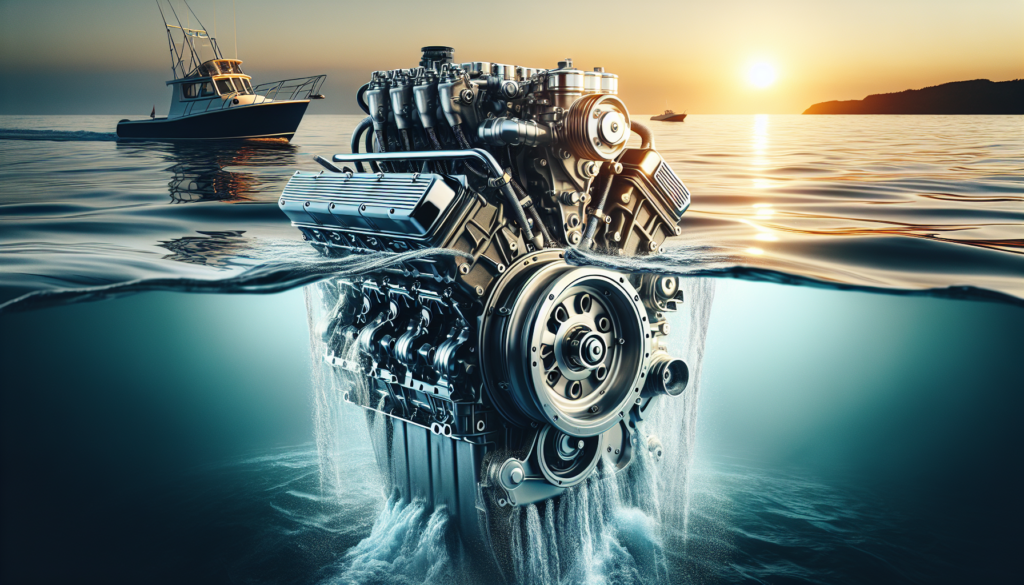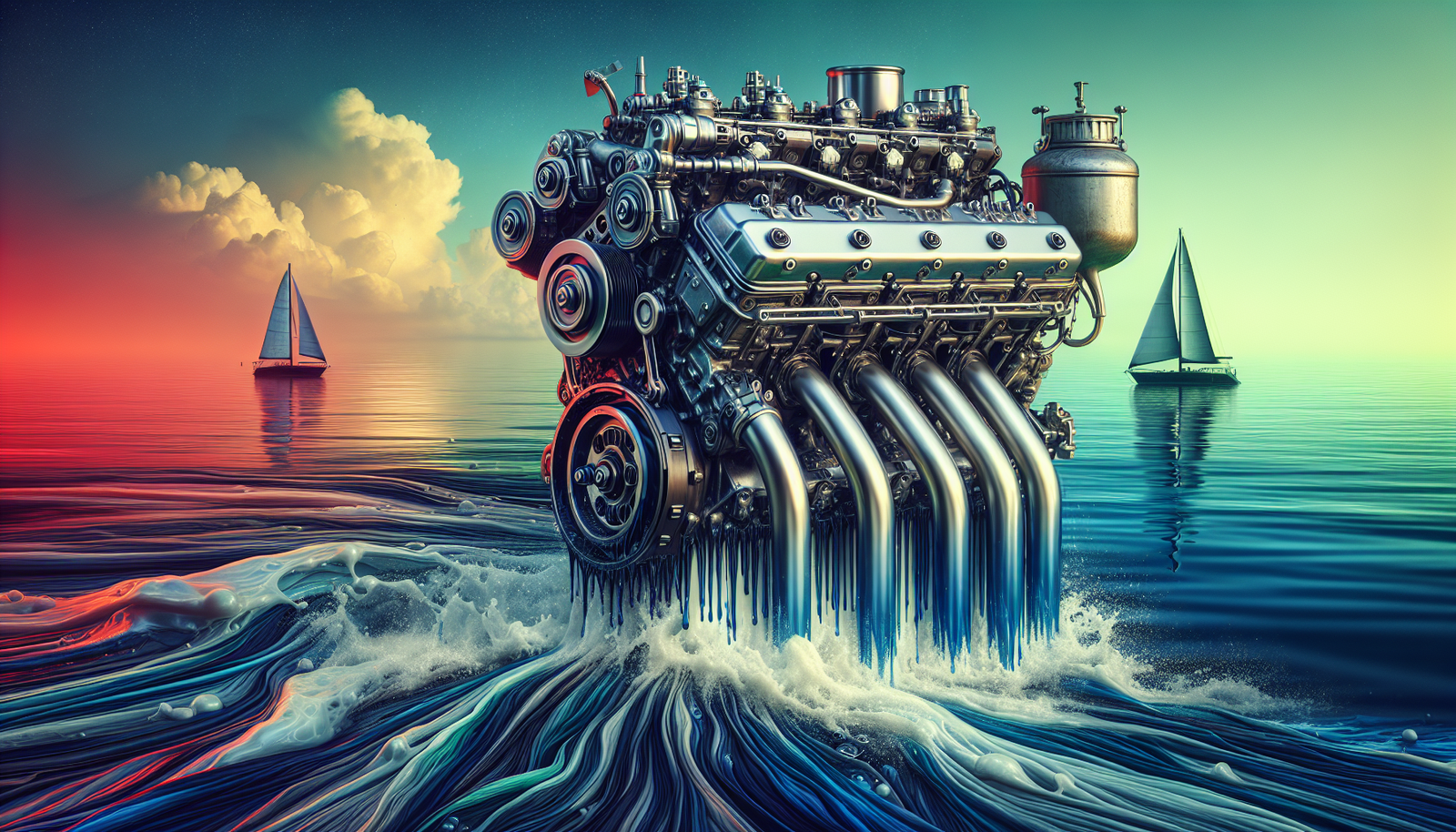Picture this: you’re out on the water, the sun is shining, and the wind is in your hair. Suddenly, your boat engine sputters and stalls. Does this sound familiar? Well, it doesn’t have to! This article, aptly titled “The Best Ways To Optimize Your Boat Engine’s Performance On The Water,” is written just for you. Here, you will discover expert advice and tried-and-true tips for getting the most out of your boat engine, ensuring smooth sailing and the ultimate on-water fun. Forget about the struggles and the stress, it’s time to revamp your boating experience!

Understanding Boat Engine Basics
Boating is all about freedom, adventure, and relaxation. But to fully enjoy the experience, you should also understand the basics of how your boat’s engine works. Just like any machine, it’s the heart of your boat.
Recognizing Different Types of Boat Engines
There are mainly two types of boat engines: inboard and outboard. An inboard engine is fitted inside the boat’s hull, whilst an outboard motor hangs off the back and features an engine, gearbox, and propeller in one portable unit. It’s essential to identify what engine type your boat has as maintenance and operation can vary between these two.
Learning How a Boat Engine Works
Beneath all the machinery, the principle of a boat engine is similar to that of a car. They convert fuel into mechanical energy which in turn powers the boat. However, boat engines often need to be more robust than car engines as they need to endure a harsher and more unstable environment with fluctuating temperatures and constant vibrations.
Identifying Major Components of a Boat Engine
The major components of a boat engine include the ignition system, the fuel system, the cooling system, and the lubrication system. Each plays a unique role in ensuring your boat engine runs smoothly. Understanding what each component does will help you conduct regular maintenance checks, troubleshoot, and optimize performance.
Conduct Regular Engine Maintenance
Regular maintenance is key for any machine, and your boat engine is no exception. This can extend the life of your engine, improve fuel efficiency and ensure a reliable experience every time you head out to the water.
Routine Inspection of Engine Parts
Inspecting engine parts is as basic as maintenance gets. Look out for any visible signs of wear and tear regularly. Check for loose wires, leaks, or anything out of the ordinary.
Changing Engine Oil and Filters
Just as you would with a car, it’s essential to change your boat’s engine oil and filters. Over time, oil can lose its viscosity and filters can become clogged, both of which can lead to a decline in engine performance.
Flushing and Cleaning the Engine Regularly
After a day out on the water, especially in salt or brackish water, it’s an excellent habit to flush your engine. This cleans out any debris and prevents corrosive damage from salt.
Checking Propellers and Shaft for Damages
Lastly, be sure to check the propeller and shaft for any damages. A bent prop or shaft can cause vibrations and noises, and cause costly damage to your gearbox.
Optimizing Fuel Efficiency
Saving on fuel means saving money and, more importantly, reducing environmental impact. Here are some tips to help you achieve optimum fuel efficiency.
Using High-Quality Fuel
Switch to cleaner, high-quality fuel as it burns more efficiently. Besides, it’s less likely to leave harmful deposits in your engine.
Improving Fuel System Maintenance
Maintain your fuel system regularly by keeping the tanks clean and changing the fuel filters routinely. A well-maintained fuel system ensures an optimum fuel-air mix, leading to more efficient combustion.
Balancing Weight for Better Mileage
A well-balanced boat ensures smooth running and better fuel efficiency. Distribute weight evenly and avoid carrying unnecessary items.
Employing Fuel Stabilizers to Keep Fuel Fresh
If you are not using your boat frequently, add a fuel stabilizer to your fuel. This prevents the fuel from deteriorating and keeps it fresh for a longer time.

Engine Tuning for Improved Performance
An engine tune-up revives your engine, rendering it nearly brand-new again. And just as human health improves with regular check-ups, so does an engine’s with regular tuning.
Importance of Tuning Your Engine
A well-tuned engine operates at its peak efficiency. It provides the best balance of power and fuel efficiency and reduces harmful exhaust emissions.
Adjusting the Ignition Timing
For inboard engines, adjusting the ignition timing is crucial for optimal performance. This ensures the spark plugs fire at the right time and the fuel-air mix burns efficiently.
Tuning the Carburetor
The carburetor regulates the mix of air and fuel going into the engine. You can tune it for better performance and improved fuel efficiency.
Balancing and Tuning the Propeller
A well-tuned propeller ensures smooth and efficient operation. Balancing and tuning your propeller decreases vibrations, improves speed and increases the life of your gearbox.
Mastering Operating Techniques
Understanding how to operate your boat can make a big difference in both fuel consumption and engine wear.
Improving Driving Style for Fuel Efficiency
Avoid hard accelerations and decelerations. Smooth, gradual changes in speed are best both for fuel efficiency and to reduce engine strain.
Understanding How Weather Impacts Performance
Bad weather conditions like heavy rains or high winds can impact your boat’s performance. Plan your trip ahead and check the weather forecast to avoid challenging situations.
Optimizing Boat Loading and Trim
Load your boat appropriately to avoid overloading and distribute the weight evenly to maintain a balanced trim. This results in optimum performance and fuel efficiency.
Navigating Through Water Currents Efficiently
Understanding and utilizing water currents can greatly reduce your fuel consumption. Always remember, going against the current uses more fuel.
Upgrade to Enhance Performance
For the best overall performance, consider upgrading some parts of your boat. Though it might mean an initial investment, it’s likely to pay off in the long run.
Identifying Upgrades That Boost Performance
Not all upgrades are equal and understanding what your boat needs can go a long way. Common upgrades include exhaust systems, ignition systems, or even the propeller.
Investing in High-Performance Parts
Investing in high-quality, high-performance parts can extend the life of your engine and increase overall performance.
Choosing the Right Propeller
If your boat’s not reaching the top speed or has poor acceleration, it might be time to replace the propeller. The right propeller can improve boat handling, speed, and fuel efficiency.
Upgrading Ignition and Exhaust System
More efficient ignition and exhaust systems can increase fuel efficiency, reduce emissions, and boost power.
Climate Impact on Boat Engine Performance
The weather can impact how your boat’s engine performs. Here’s what you need to know to keep your boat in top shape, regardless of the climate.
Understanding Effects of Cold on Boats
Cold weather can make your boat engine work harder. Winterizing your boat can help prevent damage, especially if it’s an inboard engine.
Mitigating Impact of Hot Weather
Hot weather can lead to overheating and evaporation of fuel. Ensure your cooling system is functioning correctly and store your boat in a cool, dry place.
Addressing Problems of Operating in Saltwater
Saltwater is corrosive and can cause considerable damage to your boat’s engine. Flush your engine with fresh water after each outing and regularly check for any signs of corrosion.
Addressing Common Engine Problems
Maintaining your boat and being proactive about problem-solving can help you take on most common engine problems.
Troubleshooting Starting Issues
If your boat engine refuses to start, check the state of your battery, fuel system, and spark plugs.
Solving Overheating Problems
An overheating engine is usually a sign of a malfunctioning cooling system. Check for clogs or leaks in the cooling system.
Fixing Fuel System Issues
If your engine is consuming too much fuel or not getting enough, there might be an issue with your fuel system. Regular maintenance and system checks can keep it in good shape.
Dealing with Loss of Power Problems
If your engine loses power during operation, it could be due to a variety of reasons, from fuel system problems to improper propeller choice. Identifying the root cause is the first step to fixing it.
Importance of Using The Right Lubricants
Just like in any engine, lubrication plays a vital role in the lifespan of a boat engine.
Choosing the Correct Engine Oil
Always use the type of engine oil recommended by your boat’s manufacturer. Using the right oil can prolong the life of your engine and improve its performance.
Understanding Role of Lubricants in Engine Performance
Lubricants not only reduce friction in an engine but also help disperse heat, keeping the engine cool and clean.
Changing Lubricants at Regular Intervals
Regularly replacing the lubricants can help maintain the health of your engine and enhance its performance.
Storing Your Boat Properly
Proper storage can significantly extend the lifespan of your boat and its engine.
Importance of Adequate Engine Maintenance
Proper engine storage reduces the risk of corrosion and wear. It also helps in maintaining the integrity of the engine oil and the overall health of the engine.
Steps for Proper Winterization
If you’re storing your boat during the cold winter months, it’s essential to winterize your engine. This involves flushing the engine, adding a fuel stabilizer, changing engine oil, and using an antifreeze in the cooling system.
Using Engine Fogging Oils
Fogging oils protect internal engine parts during long storage periods by coating them and preventing rust and corrosion.
Preventative Steps for Extended Storage
If you’re planning on storing your boat for an extended period, it’s crucial to take preventative measures. These include using fuel stabilizers, disconnecting the battery, and keeping the boat in a dry, well-ventilated area. With proper planning and care, your boat will be ready and raring to go when you are!


[…] experience, not one overshadowed by concerns about fuel efficiency. “What Are The Best Ways To Save Fuel With Your Boat Engine?” is an article that shares valuable tips on how to make your boat’s engine more […]
[…] a detailed guide on treating your new power source right. So, strap in and prepare to unleash your engine’s full potential, ensuring its long-term health and competence on the water. Read on to journey from a novice boater […]